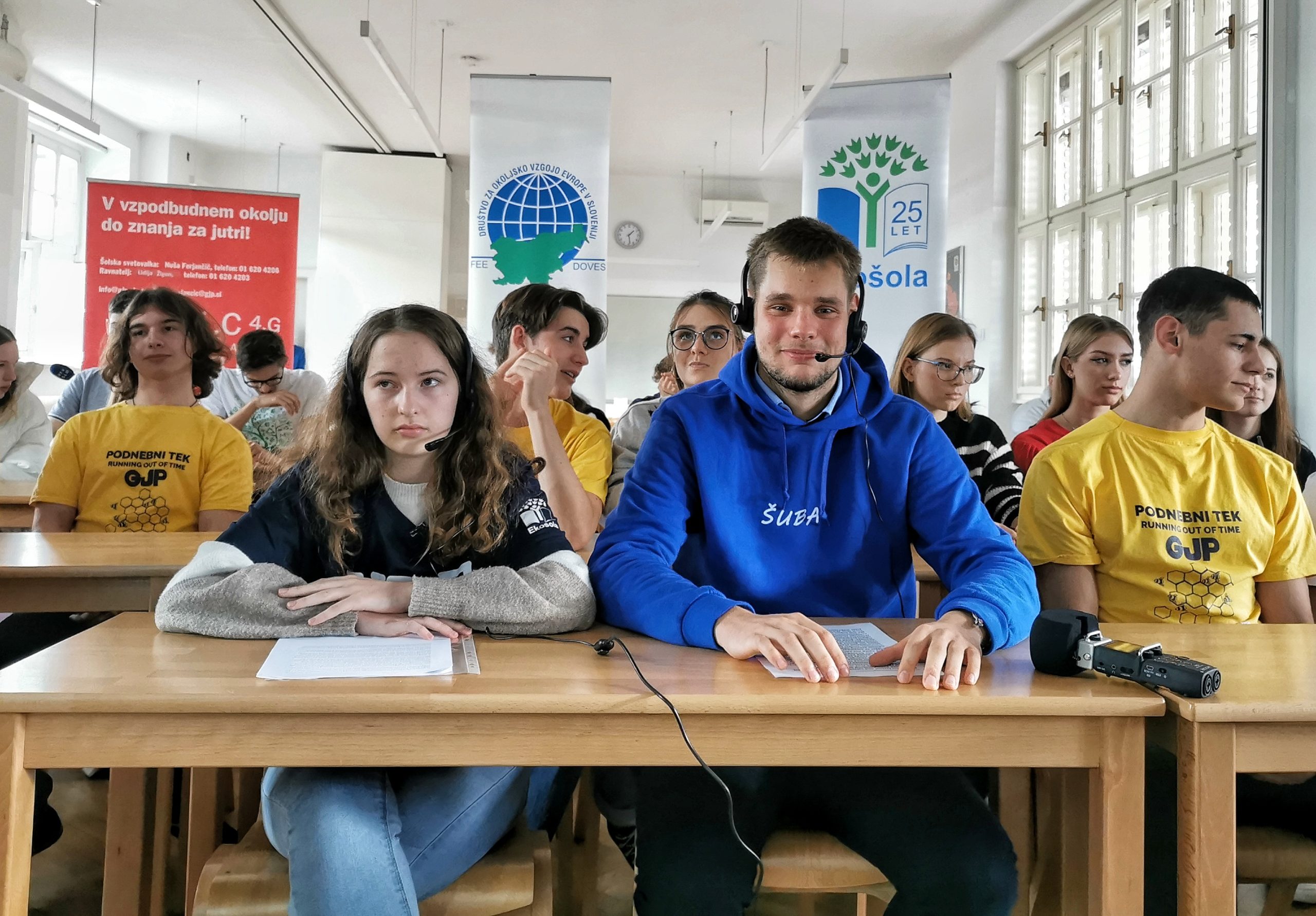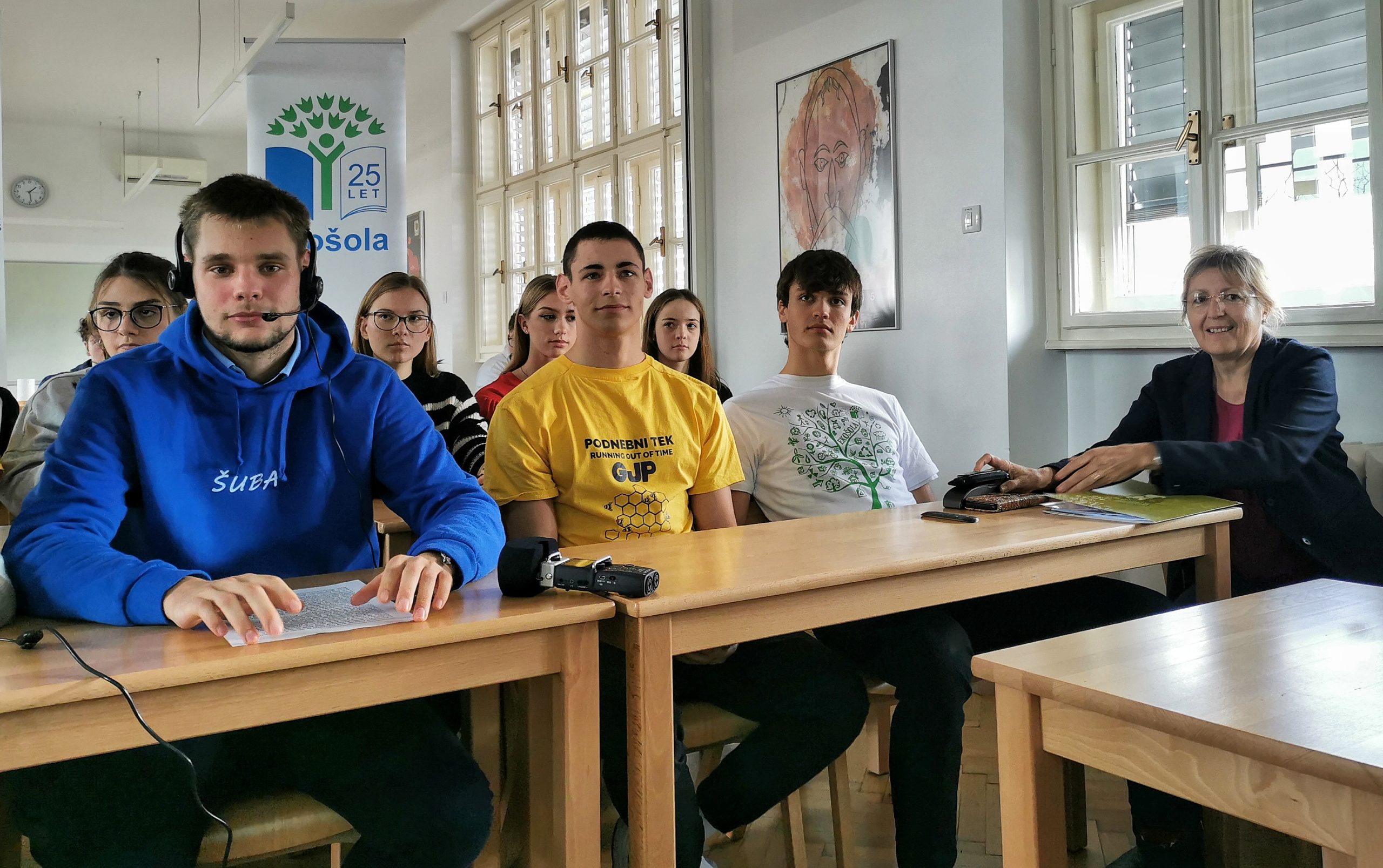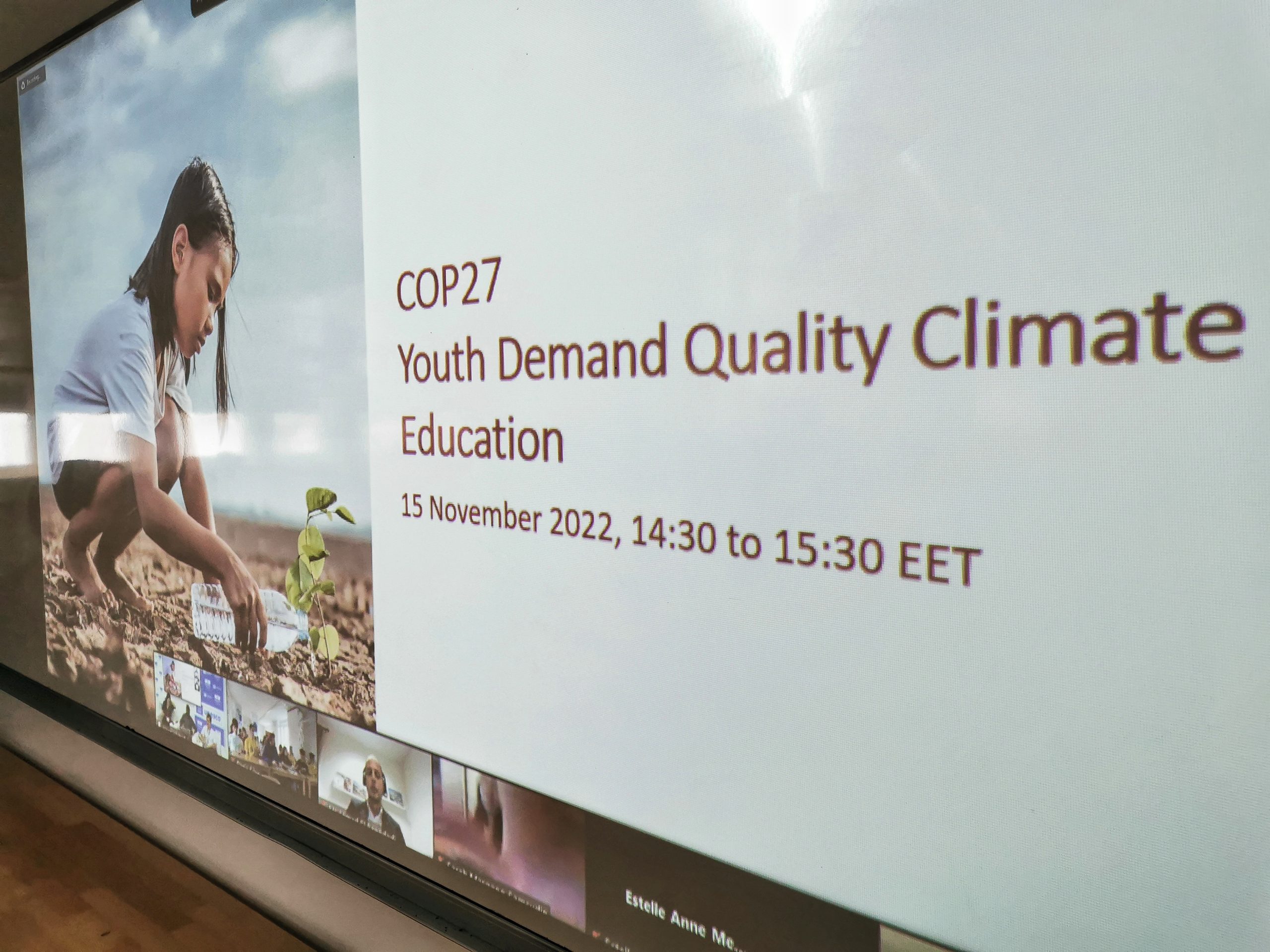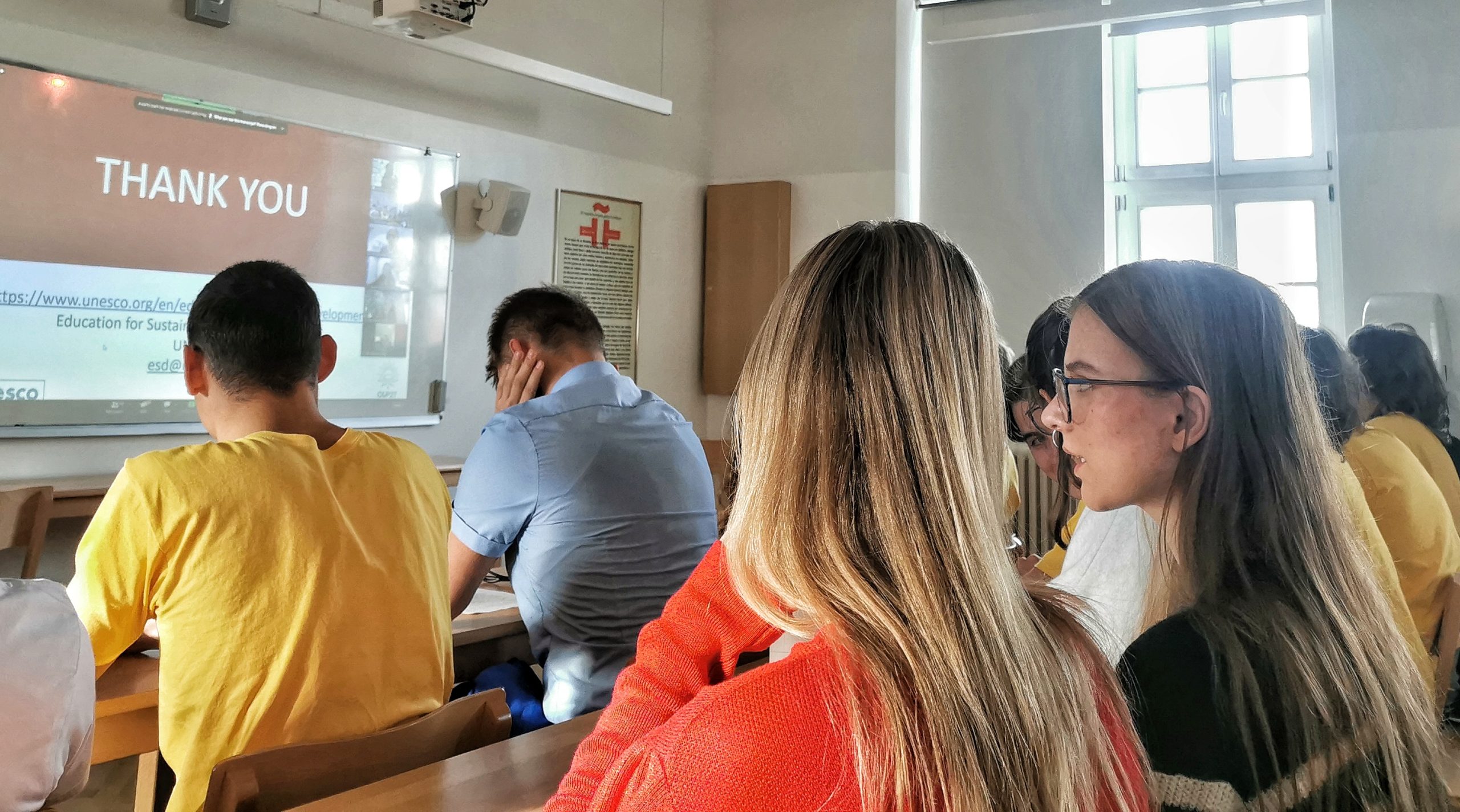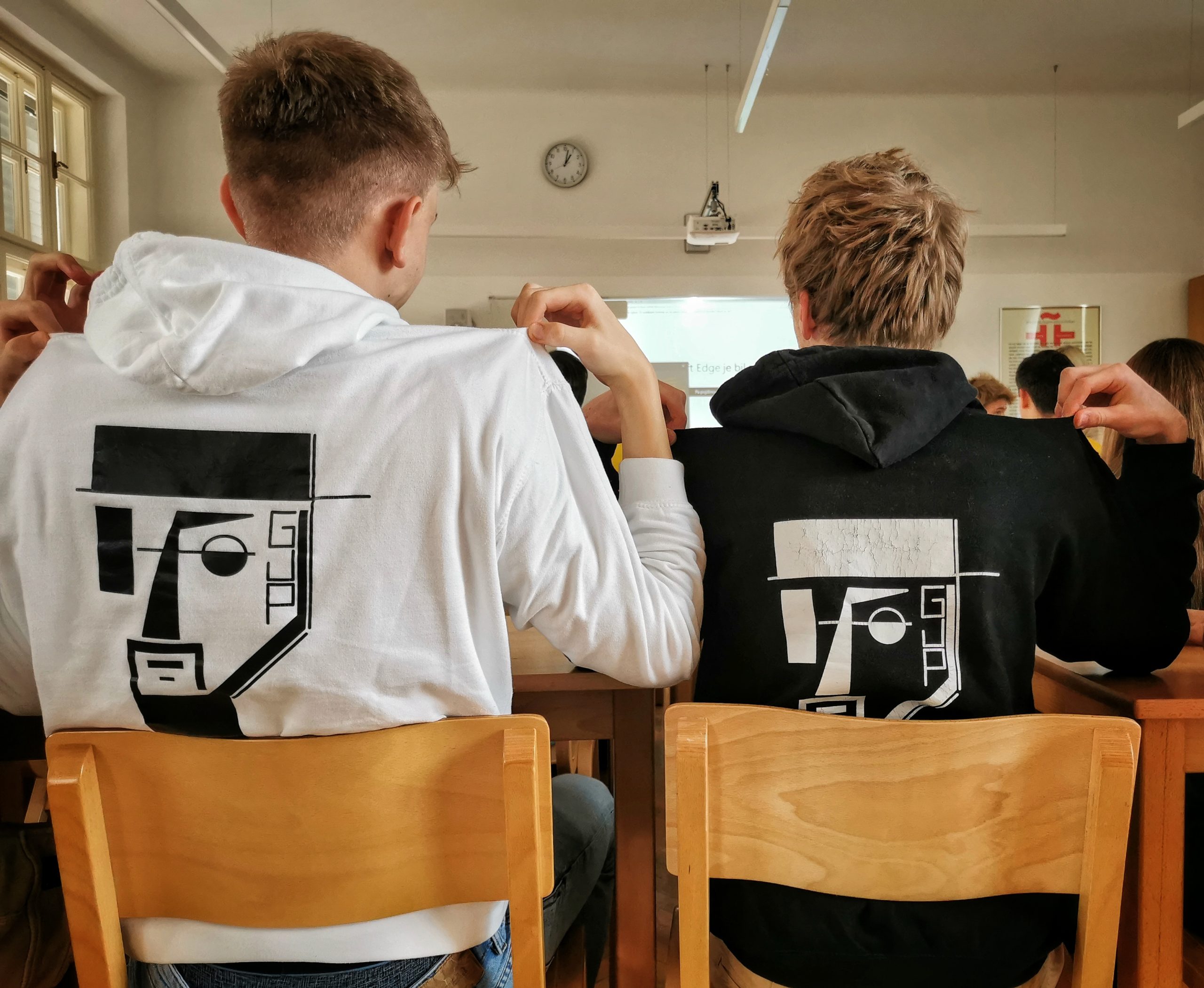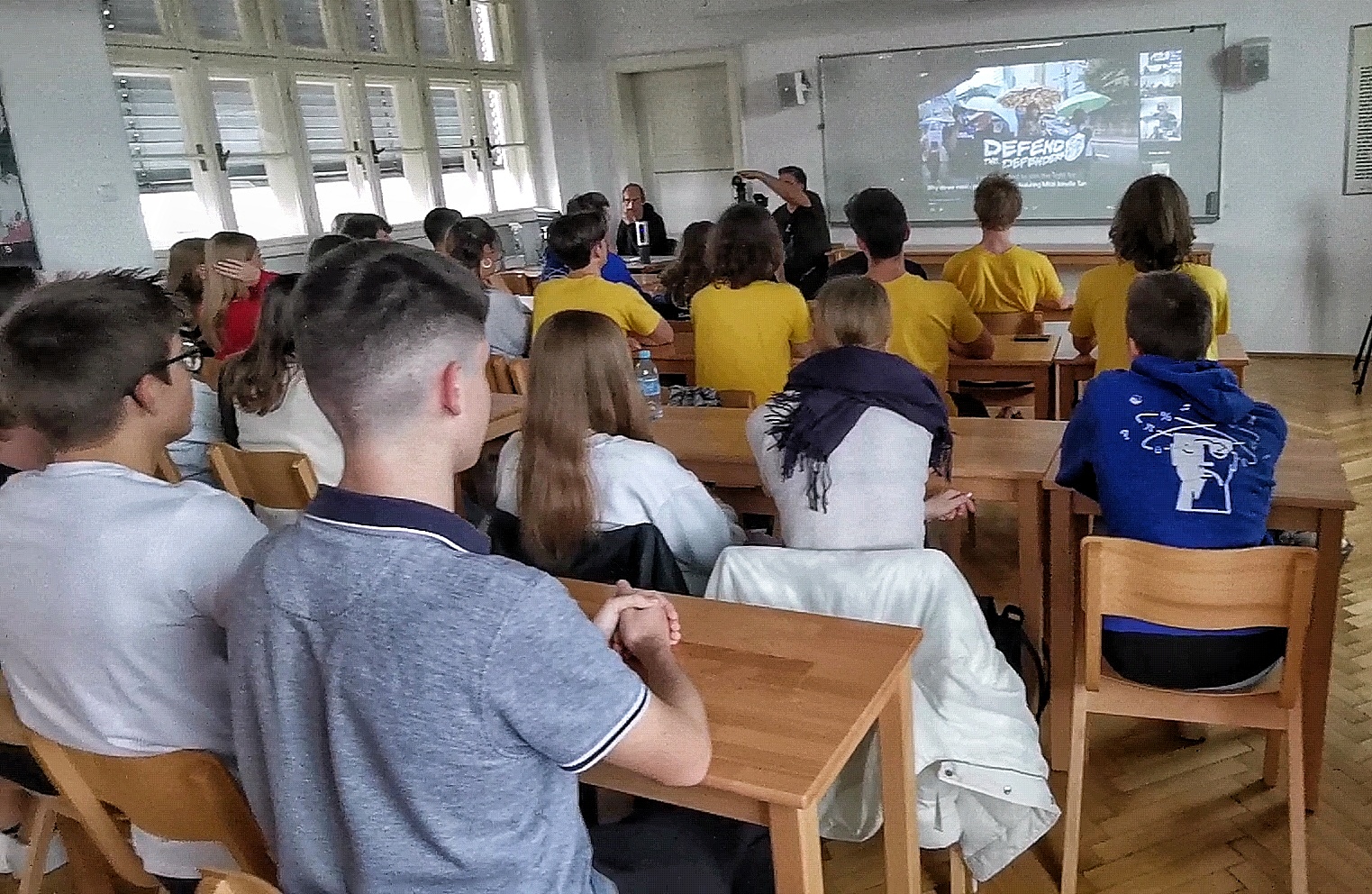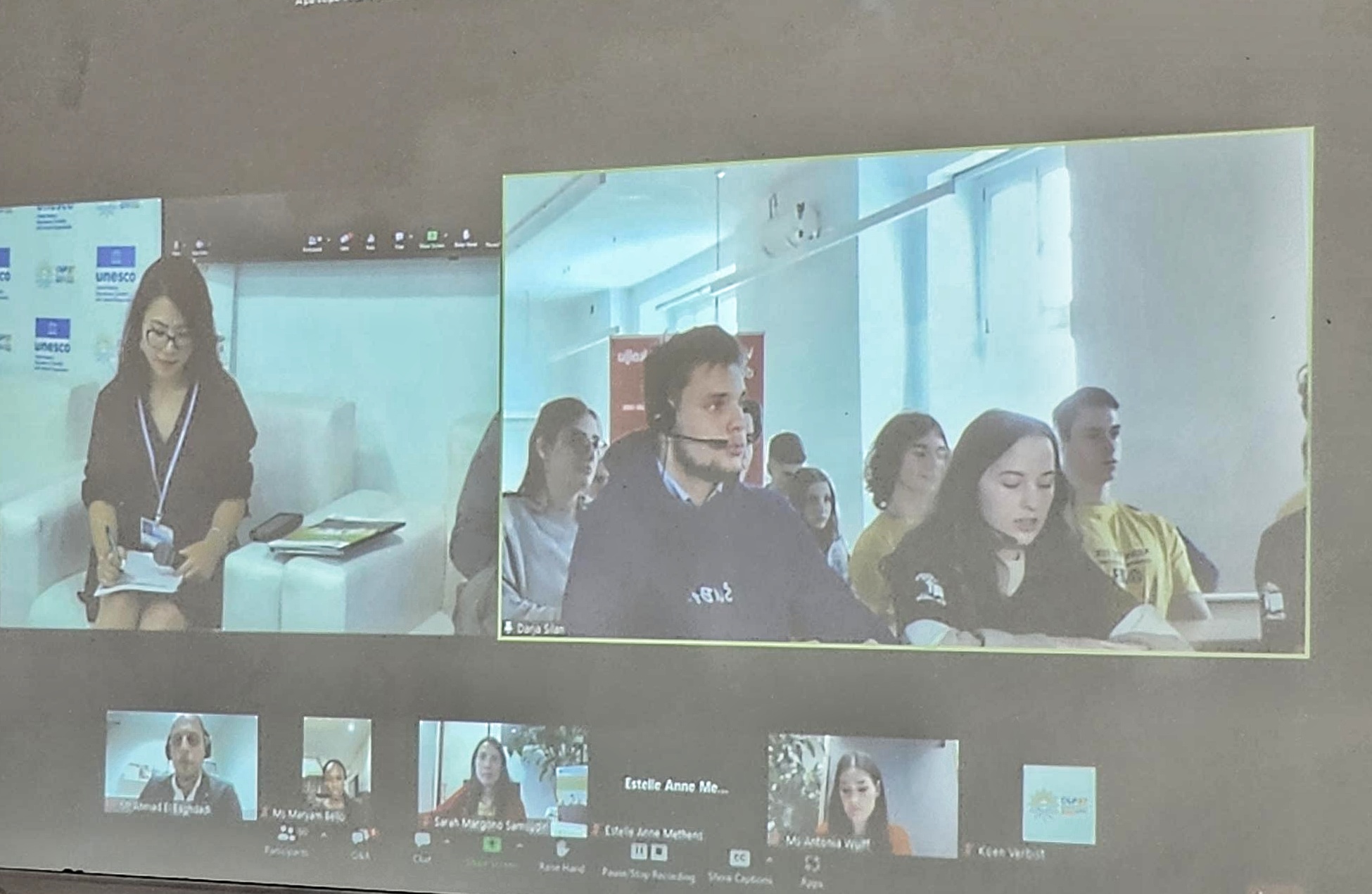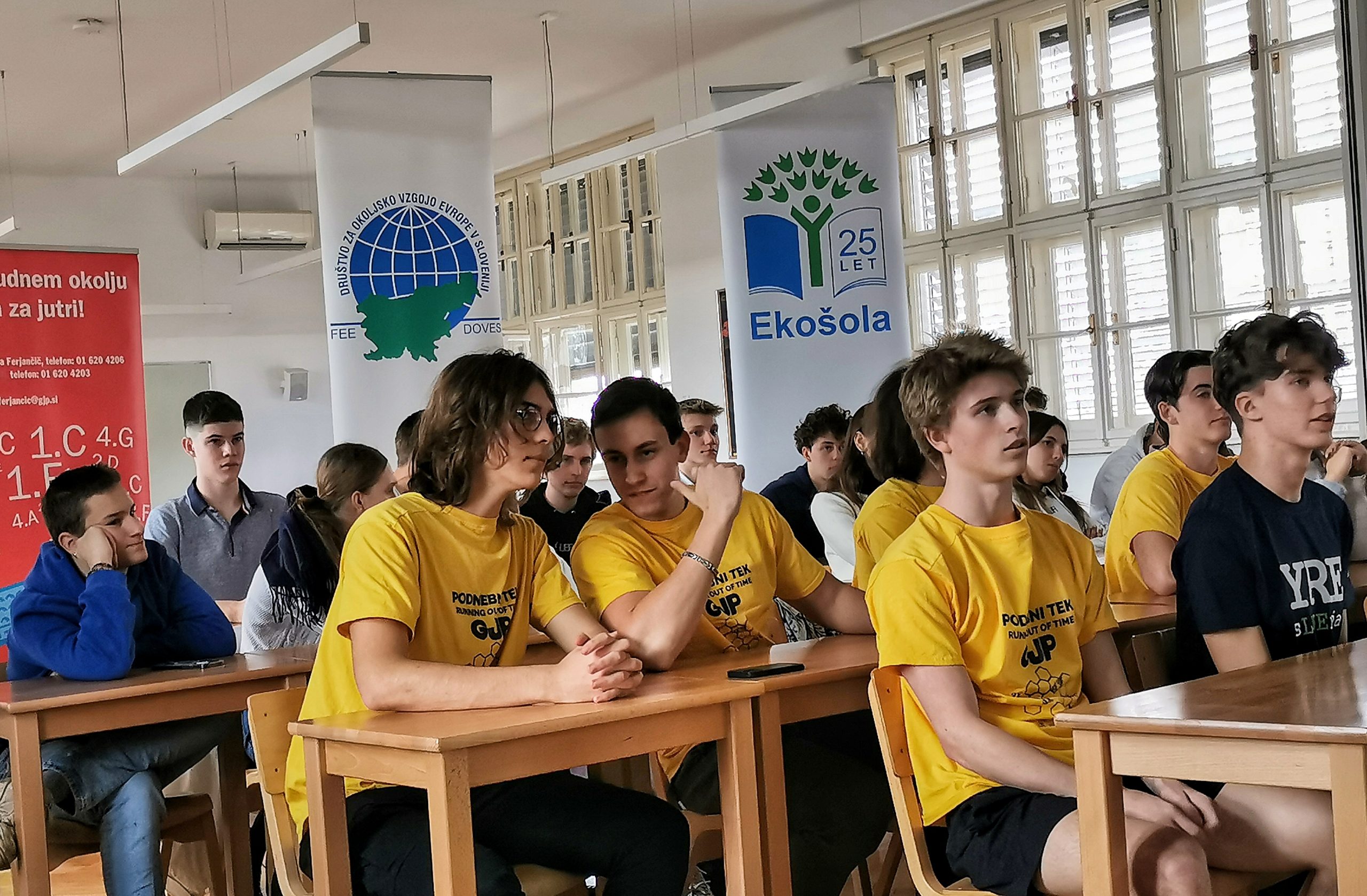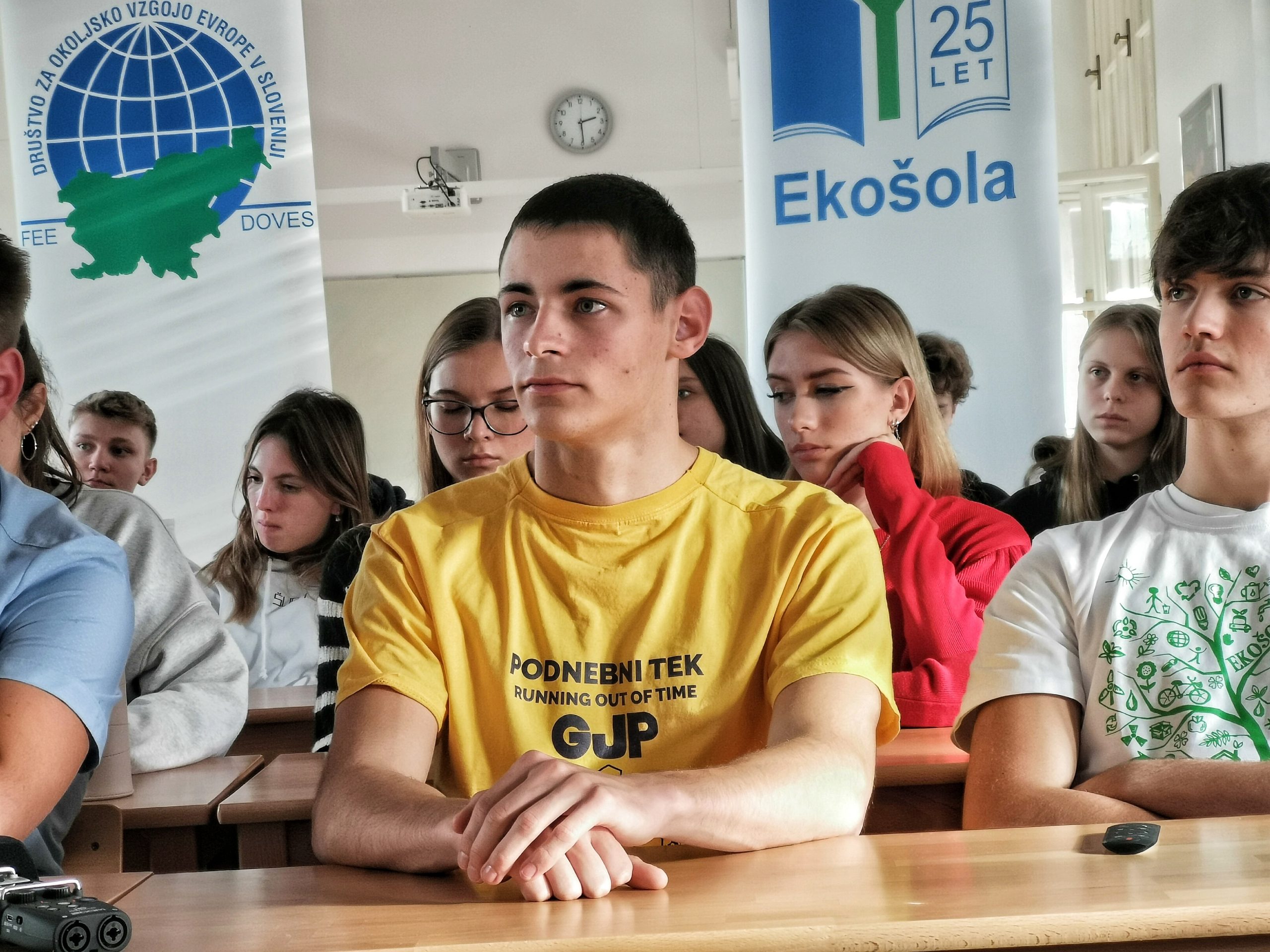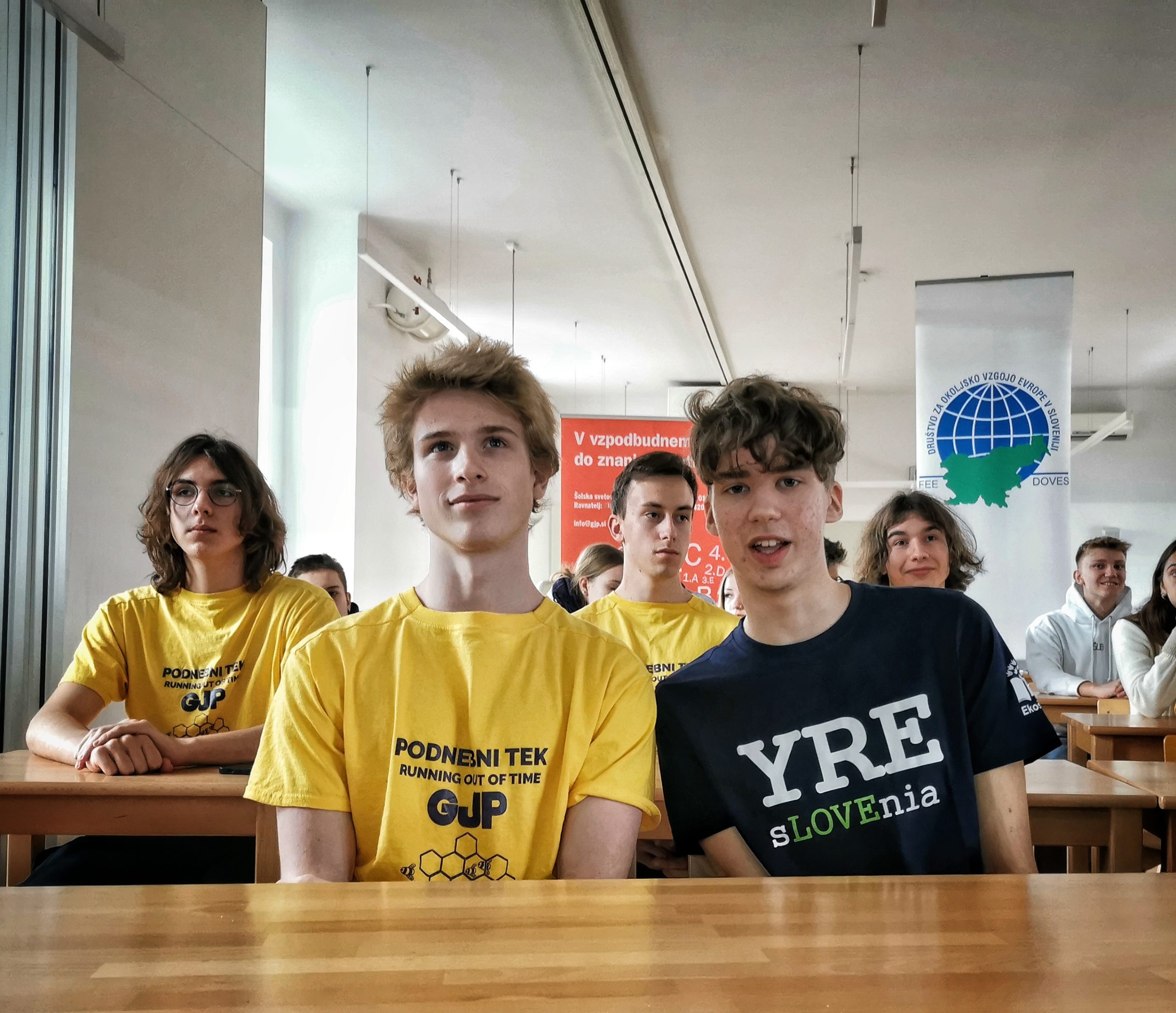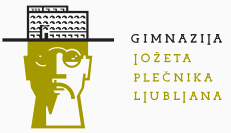Dijaka Nik Koprivec in Lucija Rotar ter 3. A razred so se v torek, 15. 11. 2022, povezali v UNESCO panelno srečanje na Podnebni konferenci COP 27. Vsebina tega srečanja je bila povezana z izobraževanjem mladih o podnebnih okoljskih spremembah, ki smo jim priče na globalnem nivoju. Izpostavila sta pomen sodelovanja širše skupnosti, vlogo učiteljev in mladih, ki bi radi bolj aktivno vstopali v procese odločanja na različnih nivojih.
Naši dijaki so nastopali kot predstavniki mednarodnega izobraževalnega programa FEE, ki je krovna organizacija programa Ekošole.
Vabljeni k ogledu prispevka o dogodku ter k branju Lucijinega in Nikovega nagovora.
Vsem sodelujočim iskrene čestitke za udeležbo!
https://365.rtvslo.si/arhiv/porocila/174914541
Yes, I believe the Running out of Time relay echoes the ways in which young people try to make their voices heard. Our high school education does not delve into the problems of global warming, nor does it discuss the need for solidarity between individuals to achieve an ethical relationship between humans and the planet we inhabit. Our education plays a crucial role in the development of young people and helps mold their beliefs. Because of that, I think that we must use education as a means to deliver the message of sustainable development while avoiding oversimplification. We must realize that life on Earth is complex, which is why our main intent with education should be to encourage students to find solutions to problems as well as raise questions about our current system, instead of repeating the same information they are told as pure fact.
As young people, we are held responsible for the future of our environment, which is a heavy burden to bear for many of us. We often believe we are powerless when faced with such serious topics and the constant influx of bad news – from wildfires, floods and drought – only makes us feel weaker. While we shouldn’t fill ourselves with false hope and optimism, it is, however, imperative that we keep fighting for a better world. Fear makes us stagnate so we must cast it aside to bring in true change.
It is also important to work as a group, as individuals we do not hold much power, but as a unified team we can make our voices heard. That is why I think the Running out of Time project is so important, a single person would not be able to achieve so much in such a short time, but as a team students like us are able to make a difference.
Governmental and non-governmental institutions play a very important role for global education towards sustainable development goals. Institutions like UNESCO, FEE, Eco – Schools and many more change the way we look at education and shift it towards a more ecologically-focused movement.
Lucija Rotar, Gimnazija Jožeta Plečnika Ljubljana
Education, formal and informal, is often overlooked in climate policy-making and that is why we are here to remind you that also we, young people, want to make a contribution. A UNESCO research report (Youth demands for quality climate change education), published last Summer, says that 91 percent of youth want to get more education about climate change and over 70 percent of teachers are ready to teach environmental contents in schools. 70 percent of young people are worried about the future of our beautiful planet. We are here to clearly voice our concerns.
In order to empower the youth to drive change the problem solving approach should be included in our education, similar to the way the subject Environmental Studies has been included in our school curriculum. We learn about our planet generally and locally, trying to find some solutions to the problems that are within our reach. We need to start ourselves and lead by example. Such approach should be part of the school programs in every single country. It is also important to empower our educators through a thorough training program to acquire the competences related to sustainable development.
We will follow our teachers if the legal body ensures such steps ahead. Our behaviour should change from anthropocentric to ecocentric with more respect to the living. This can be achieved within a good framework of formal and informal education, with different ways to get the required competences and practices such as outdoor education, problem-based learning, critical reflection and systemic and future oriented thinking.
In our school, located in the very center of Ljubljana, the capital of Slovenia, students and mentors have constructed the school’s own urban roof garden. We have installed a beehive, we are preparing different actions during the school year to promote our green thinking and recently we have participated in the Running out of Time project to promote sustainable development. Lucija has already presented this project to you.
We want to be more included in the policy-making because this is OUR world too and we can help solve climate change problems.
According to an old Slovenian saying več glav več ve more people together know more than one person alone. We do not need magic to change the world. We already have enough willpower to create a better world, we only need the right guidance and support.
Nik Koprivec, Gimnazija Jožeta Plečnika Ljubljana
Posnetek sodelovanja na Podnebni konferenci COP 27:
Youth Demand Quality Education: outcome of global survey – Zoom
UNESCO’s climate change education events at COP27 in Sharm el-Sheikh | UNESCO
